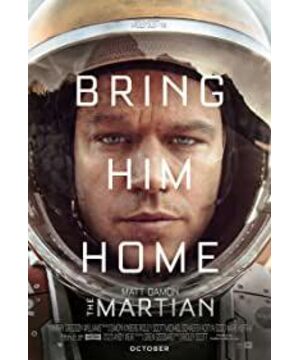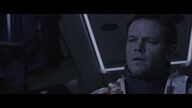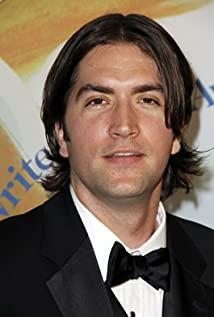Today, I want to tell you a story of desperate survival.
Do you remember Dr. Mann in "Interstellar"? It was Dr. Mann who went to outer space to find the hope of human migration and survival. Do you remember how Dr. Mann was chosen as the representative of mankind? It doesn't matter if you don't remember, please listen to me.
When he was still called Mark, he was thrown alone on Mars. He planted potatoes himself, made fresh water, improved the performance of solar cells and the rover, and was driven by an unmanned vehicle and then thrown into the Martian atmosphere, like Iron Man normally flies to the mothership called Hermes, and then returns to Earth.
There are many stories about how people would survive if they were thrown into a desperate situation. For example, Robinson in "Robinson Crusoe" suffered a shipwreck and was trapped on the island, constantly looking for things to do; the boy in "The Fantasy and Beauty of the Boy" suffered a shipwreck and was trapped in a life raft. In "Gravity of the Earth", he kept looking for things to do; Dr. Stone in "Gravity of the Earth" encountered a space disaster and was trapped in outer space, constantly looking for things to do; Astronaut Mark in "The Martian" encountered Mars The people on the road flew into a disaster and got trapped on Mars. Yes, they kept looking for things to do.
In this way, constantly looking for things to do seems to be a rule of survival that takes many difficulties.
Judge, don't laugh first. Constantly looking for things to do is actually just the appearance of their survival. There are three deeper reasons:
1) The will to survive
discussing with friends when watching a movie, life and death are the most important test of a person's will to survive. Anyone who can survive a desperate situation feels that they can survive.
Robinson thinks that if you can survive, you will be able to go home after you build a ship; the juvenile pie floating on the sea believes that you can survive until you are rescued; Dr. Stone believes that you will be able to return to life if you find another spacecraft. To the Earth; Astronaut Mark can live for hundreds of days after forgetting his own food, so he will live for hundreds of days first. When these people were forced to the front line of life and death, they could instinctively choose to struggle.
After all, it’s just a death. If you don’t try, you will be dead. You might live if you try. There is hope if you live.
2)
The instinct of the eye creatures discovered is to survive, but why some people can live in the face of disasters, but some people die. To use a cliché, because those who survive can find hope in despair. If there is no eye to find, what do you use to find hope?
How the eyes of discovery come from, is to have some skills, commonly known as skill points. Robinson was a sailor who would look for food and didn’t eat himself to death—a counter-example is that a college student in "Into the Wild" poisoned himself by eating the wrong thing on his journey to find himself in Alaska . The juvenile school at least understands English and can understand the instructions for using the desalination device in the life raft, otherwise it will die of thirst before starving to death. Dr. Stone has a good memory. When he finally arrived at China Shenzhou, although he couldn't understand a Chinese character, with his good memory, he pressed the right button and started the spacecraft. Astronaut Mark is an excellent botanist, and he took part in astronaut training seriously, so he made fresh water on Mars, planted potatoes, and modified equipment.
So, Shonen Lang, don't you still study hard? All accumulation is useless today, but tomorrow.
3) The
sings of "True Hero": No one can succeed casually.
Despair is not a fairy tale. Even if you find hope in the desperate situation and add the right skill points, you still may not survive. Robinson found cannibals on the island. When he died, it was a snack for the cannibals, and when he was alive, it was a sashimi for the cannibals. The young pie found that the tiger could not jump over the small raft where he survived, so he put all the fresh water and compressed food on the small open raft. The result was a second sigh that whales appeared under the vast starry sky, and the next second was all the reserves. Buried in the deep sea. Dr. Stone reached the Russian space shuttle after all the hardships, but found that it had broken down. Astronaut Mark happily discovered that his food could actually be eaten for a long time, and he realized in the next second that he would not be able to sustain the next spacecraft to Mars.
To be honest, if you don't have a little bit of teasing at this time, you really won't be able to survive. The academic name of Jubi Spirit is "Spiritual Victory Method", which is actually to cheer oneself up and arm one's will with a spiritual victory method. Just like Mark, yes, food is not enough, but it can last a lot longer than I thought before, and I am a botanist, then, I can at least use this time to try to see if I can plant some on Mars Eat, be self-sufficient.
To survive in desperate circumstances, the will to survive, the eye of discovery, and the spirit of amusing comparison are indispensable. Of course, you can also say that desperate survival is luck. However, please don't forget that luck is often part of strength.
Astronaut Mark demonstrated his ability to survive in desperate situations during a mission to Mars, so when humans were in desperate situations on Earth, NASA sent him to search for outer space to find the hope of human migration and survival. This time he changed his name to Mann because he became a human representative looking for hope.
It’s a pity that the despair this time is too desperate-the main reason is that he can't grow potatoes, and he wants to live too much, so he ignorant of his conscience, sent a false "here is suitable for human survival" signal to attract the brigade Centaur went to his planet to find him. And because he didn't want the whole world to find out that he was a liar, he decided to kill all the troops and return to Earth by himself.
So, the question is, why did astronaut Mark try his best to rescue himself on Mars, but after becoming Dr. Mann, he did not become the caring human savior?
A. Because he was frightened by the disco music of the 1980s that might be on the spacecraft-you need to watch "Martian Rescue" to understand this story. Students who haven't seen it decline negative comments.
B. Because he wants to leave this opportunity to a sentimental farmer-that is, the farmer who "even if he grows corn in front of a farmer, he must leave the car to his son and the spaceship to the woman, and then save the world."
C. Because his name has said everything, he is nothing but a human (Man).
D. The above three are all correct answers.
The film introduction of
Zhenger Bajing recently watched two disaster films, "Everest" and "The Martian". Judging from the trailer, these two films should be Hollywood standard disaster films, one is climbing the roof of the world and encountering a storm, the other is a person performing a mission but being left on Mars.
From the audience's point of view, with a two-hour film length, all the shots in the trailer of "Death Altitude" are from the last 30 minutes of the movie; "The Martian" entered the critical plot in the first five minutes.
In this way, "Desperate Altitude" is a bad movie?
Actually otherwise, what "Desperate Altitude" wants to show is the life of a group of people. Everyone who goes to climb Mount Everest is proving his own way of living, proving his fresh life. But these lively lives disappeared without any background music rendering in the whistling wind.
"The Martian" is different. From the moment the film enters the key plot, you will understand that this person is destined to die because Mars lacks all the necessary conditions for human survival. So, this is a person who is destined to die. In two hours, telling the audience and telling the world that I want to live, I can live, and I live.
Just like at the end of the film, Mark returned to Earth to teach the new astronauts and asked himself: "At that time, did I think I would die?"
At the end, a stream of consciousness when I watched a movie is attached. There was a discussion on "Interstellar" before. Why did Dr. Mann, a top scientist with rigorous aerospace training, mistake the operation method of the pressure chamber and explode? This question was answered in "The Martian", people are always planted in the same pit several times.
When you see this, don't doubt it. This is not a serious viewing notebook, because I saw "The Martian" as the prequel to "Interstellar" by Dr. Manning.
View more about The Martian reviews











